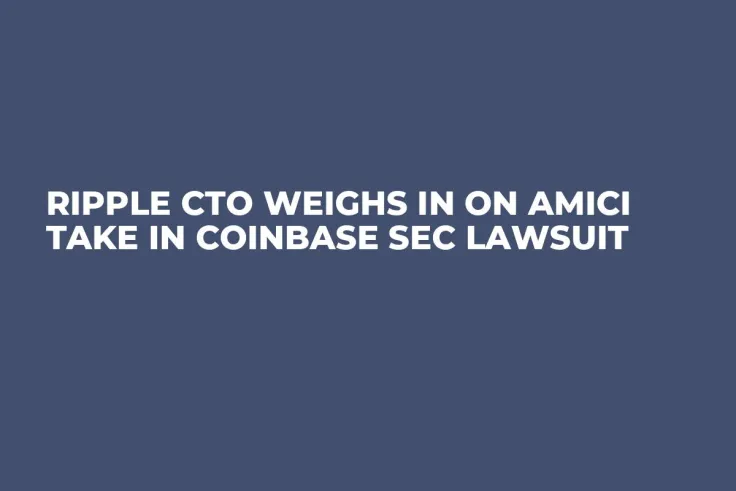
Disclaimer: The opinions expressed by our writers are their own and do not represent the views of U.Today. The financial and market information provided on U.Today is intended for informational purposes only. U.Today is not liable for any financial losses incurred while trading cryptocurrencies. Conduct your own research by contacting financial experts before making any investment decisions. We believe that all content is accurate as of the date of publication, but certain offers mentioned may no longer be available.
U.S. crypto exchange Coinbase took a big leap forward in its ongoing legal tussle with the SEC when notable individuals and organizations joined the case as amici.
U.S. lawmaker Cynthia Lummis, the Blockchain Association, the Crypto Council for Innovation, the Chamber of Digital Commerce, the DeFi Education Fund, the Chamber of Progress, the Consumer Technology Association, Andreessen Horowitz, Paradigm and six law professors have filed amicus briefs in the Coinbase lawsuit.
Paul Grewal, Coinbase's chief legal officer, expressed his gratitude, saying that the briefs will aid the Court in understanding the SEC's legal errors.
Legal expert "MetaLawMan" draws attention to a "devastating" amicus brief in support of Coinbase prepared by six securities law scholars, highlighting a big update in the case.
This group includes law professors from Yale, the University of Chicago, UCLA, Fordham, Boston University and Widener University.
According to MetaLawMan, the amicus brief masterfully follows the history of the definition of "investment contract" before, during and after the enactment of the federal Securities Act in 1933.
The brief, in his judgment, shreds the SEC's "investment contract" theory and deals a big blow to its contention that crypto tokens traded on secondary markets are investment contracts.
Reactions trail law scholars' brief
No doubt the amicus briefs from the law professors have drawn positive comments and acclaim, but reactions have also highlighted the seeming flaws in their arguments.
Ripple CTO David Schwartz pointed out that the brief did a poor job of addressing the holding in Joiner. In his opinion, this remains the weakest point in the brief.
I think the weakest point in that brief is that they don't do a good job of addressing the holding in Joiner. But at most, Joiner says that if a reasonable buyer could have thought that they had enforceable, contractual rights, that can be sufficient.
— David "JoelKatz" Schwartz (@JoelKatz) August 12, 2023
Along these lines, Twitter user David Barrera pointed out the gross disregard of the actual holding in Joiner by the law scholars. Joiner refers to the first case in which the Supreme Court interpreted the definition of an investment contract.
Contrary to what the scholars claim, the issuer in Joiner did not make "contractual undertakings to deliver future value reflecting the income, profits, or assets of a business."
A line in the conclusion of the law scholars' brief reads that "an investment contract requires contractual undertakings to deliver future value reflecting the income, profits, or assets of a business." According to Barrera, this assertion is incorrect under Joiner.


 Dan Burgin
Dan Burgin Vladislav Sopov
Vladislav Sopov